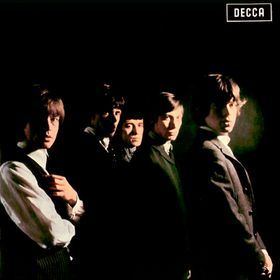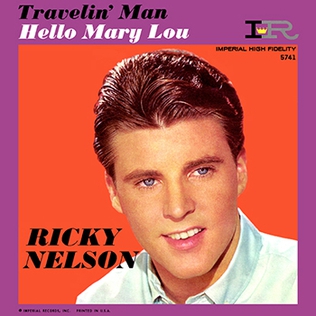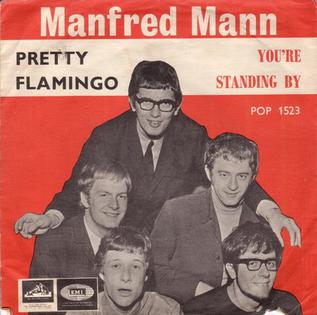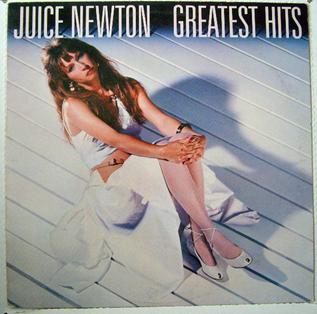Related Research Articles

Gene Francis Alan Pitney was an American singer-songwriter and musician.

The Partridge Family Sound Magazine is the third studio album by TV-linked pop project The Partridge Family. Released in August 1971 ahead of the start of the second season of the US TV series, it was their third hit album in ten months. In late September 1971, in its fifth week on Billboard's Top LP's chart, the album reached its no. 9 chart peak. In that same week the album's one hit single release, "I Woke Up In Love This Morning", peaked at no. 13 on Billboard's Hot 100. The LP was certified gold that same month. Sound Magazine is near-universally regarded – by both fans and critics – as the Partridge Family's consummate pop album.

The Partridge Family Notebook is the sixth studio album by The Partridge Family. Released in November 1972, the album entered Billboard's Top LP's chart in December, peaking at no. 41 in January 1973 – the same week in which its lead single, a cover of Barry Mann and Cynthia Weil's "Looking Through the Eyes of Love", peaked at 39 on Billboard's Hot 100. The album remained in the Top 200 for 16 weeks, and was the first by the Partridge Family not to reach the Top 40.

The Rolling Stones is the debut studio album by the English rock band of the same name, released by Decca Records in the UK on 16 April 1964. The American edition of the LP, with a slightly different track list, came out on London Records on 30 May 1964, subtitled England's Newest Hit Makers, which later became its official title.
"I Really Don't Want to Know" is a popular song written by Don Robertson (music) Howard Barnes (lyrics). The song was published in 1953.

"Hello Mary Lou" is a song written by American singer Gene Pitney first recorded by Johnny Duncan in 1960 and in the following year by Ricky Nelson. The song was recorded by Ricky Nelson at the famous United Western Recorders Studios on 22nd March, 1961.

"Pretty Flamingo" is a song written by Mark Barkan, which became a hit in 1966 when Manfred Mann's recording of it was released as a single. The single reached number one in the UK Singles Chart on 5 May 1966. Manfred Mann's recording was a minor hit in the United States where it spent eight weeks on Billboard's Hot 100 chart, peaking at number 29 during the week of August 6, 1966. It was also successful in Ireland, and was number one there for four weeks, keeping the Rolling Stones' "Paint It Black" at number two.

"Something's Gotten Hold of My Heart" is a song written by Roger Greenaway and Roger Cook.
"To Know Him Is to Love Him" is a song written by Phil Spector, inspired by words on his father's tombstone, "To Know Him Was to Love Him." It was first recorded by the only vocal group of which he was a member, the Teddy Bears. Their recording spent three weeks at No. 1 on the Billboard Hot 100 chart in 1958, while reaching No. 2 on the UK's New Musical Express chart. Peter & Gordon and Bobby Vinton later had hits with the song, with its title and lyrics changed to "To Know You Is to Love You". In 1987, the song was resurrected by Dolly Parton, Linda Ronstadt, and Emmylou Harris, whose Trio recording topped the U.S. country singles chart. The song is in 12/8 time.

"Tryin' to Get the Feeling Again" is a song written by David Pomeranz that became a top 10 hit for Barry Manilow in 1976. It was first recorded by the Carpenters in 1975, but their version was not released until 1994 on their 25th anniversary CD, Interpretations: A 25th Anniversary Celebration. Pomeranz also recorded the song for his 1975 album It's in Every One of Us.
"Down in the Boondocks" is a song written by Joe South, and recorded by American artist Billy Joe Royal as his debut single. It was a hit in 1965, reaching No. 9 on the Billboard Hot 100 chart. In the UK, it hit No. 38 on the Record Retailer chart. In Canada, it reached No. 1 on the RPM chart, on August 9, 1965. The song is the title track of Royal's second album, Down in the Boondocks.

"Only Love Can Break a Heart" is a popular song from 1962, performed by the American singer-songwriter Gene Pitney. The song was written by Hal David (words) and Burt Bacharach (music) and appears on Pitney's second album Only Love Can Break a Heart.
"One Has My Name " is a 1948 song by singing cowboy Eddie Dean, his wife Lorene "Dearest" Dean, and Hollywood songwriter Hal Blair. The song was first recorded by Jimmy Wakely and was his third release on the Folk Best Seller charts and his first number one. Within two years of the song's release, two additional versions of "One Has My Name " made the country charts, recorded by Eddie Dean and by Bob Eberly.
"It Hurts to Be in Love" is a song written by Howard Greenfield and Helen Miller which was a Top Ten hit in 1964 for Gene Pitney. It was one in a long line of successful "Brill Building Sound" hits created by composers and arrangers working in New York City's Brill Building at 1619 Broadway.

I Must Be Seeing Things the 12th album released by American singer Gene Pitney, released on the Musicor label in the United States in 1965. The album was released as Looking Thru the Eyes of Love on the Stateside label in the United Kingdom.
"Workin' On a Groovy Thing" is a song written by Neil Sedaka and Roger Atkins which had its highest profile as a 1969 hit single by the 5th Dimension.
"Just One Smile" is a pop song written by Randy Newman in 1960. An early version was recorded by Gene Pitney in 1965. It appeared on his 1965 album, I Must Be Seeing Things, and AllMusic noted that it "allowed Pitney to explore the extent of his dramatic range with its tale of the giddy highs and painful lows of a love affair".
"(The Man Who Shot) Liberty Valance" is a song written by Burt Bacharach and Hal David, which was released by Gene Pitney in 1962. It spent 13 weeks on the Billboard Hot 100 chart, peaking at No. 4, while reaching No. 2 on Canada's CHUM Hit Parade, and No. 4 on New Zealand's "Lever Hit Parade".

Greatest Hits is the ninth album and first greatest hits collection by country pop singer Juice Newton. It was originally released by Capitol Records in 1984 with ten tracks taken from her albums Juice, Quiet Lies, and Dirty Looks. It was reissued in 1986 in an expanded 15-track edition titled Juice Newton's Greatest Hits . The album became a best seller and has been certified gold by the Recording Industry Association of America.

"Yours Until Tomorrow" is a song written by Gerry Goffin and Carole King, recorded by Dee Dee Warwick in 1968. It was used as the B-side to her recording of "I'm Gonna Make You Love Me." Versions by, respectively, Vivian Reed and Gene Pitney performed on music charts.
References
- ↑ Gene Pitney, "Looking Through the Eyes of Love" Chart Positions Retrieved January 16, 2015
- ↑ Gene Pitney, I Must Be Seeing Things Retrieved January 16, 2015
- ↑ Gene Pitney, "Looking Through the Eyes of Love" single release Retrieved January 16, 2015
- ↑ Roberts, David (2006). British Hit Singles & Albums (19th ed.). London: Guinness World Records Limited. p. 419. ISBN 1-904994-10-5.
- ↑ The Partridge Family, "Looking Through the Eyes of Love" Canadian Chart Position Retrieved January 16, 2015
- ↑ The Partridge Family, "Looking Through the Eyes of Love" U.S. and U.K. Chart Positions Retrieved January 16, 2015